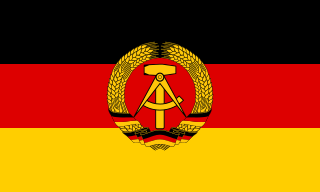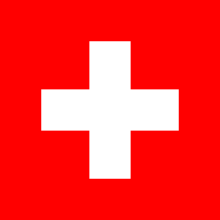
The FIS Nordic World Ski Championships is a biennial nordic skiing event organized by the International Ski Federation (FIS). The World Championships was started in 1925 for men and opened for women's participation in 1954. World Championship events include nordic skiing's three disciplines: cross-country skiing, ski jumping, and nordic combined. From 1924 to 1939, the World Championships were held every year, including the Winter Olympics. After World War II, the World Championships were held every four years from 1950 to 1982. Since 1985, the World Championships have been held in odd-numbered years.

Germany competed at the 2002 Winter Olympics in Salt Lake City, United States. In terms of gold medals, Germany finished ranking second with 12 gold medals. Meanwhile, the 36 total medals won by German athletes were the most of any nation at these Games, as well at any Winter Olympics, until this record was broken by the United States at the 2010 Winter Olympics.

Norway was the host nation for the 1994 Winter Olympics in Lillehammer. It was the second time that Norway had hosted the Winter Olympic Games, after the 1952 Games in Oslo. In 1994, Norway finished second in the medal ranking to Russia, with strong results in the skiing events.

Japan competed at the 2002 Winter Olympics in Salt Lake City, United States.

Japan was the host nation for the 1998 Winter Olympics in Nagano. It was the second time that Japan has hosted the Winter Games, after the 1972 Winter Olympics in Sapporo, and the third time overall, after the 1964 Summer Olympics in Tokyo.

Norway competed at the 2002 Winter Olympics in Salt Lake City, United States. The nation enjoyed its best ever results in gold medals, most notably in the biathlon events, when Ole Einar Bjørndalen swept all four gold medals.

Biathlon debuted at the 1960 Winter Olympics in Squaw Valley, California with the men's 20 km individual event. At the 1968 Winter Olympics in Grenoble, the men's 4 × 7.5 km relay debuted, followed by the 10 km sprint event at the 1980 Winter Olympics in Lake Placid, New York. Beginning at the 1992 Winter Olympics in Albertville, women's biathlon debuted with the 15 km individual, 3 × 7.5 km relay, and 7.5 km sprint. A pursuit race was included at the 2002 Winter Olympics in Salt Lake City. The top 60 finishers of the sprint race would qualify for the pursuit event. The sprint winner starts the race, followed by each successive biathlete at the same time interval they trailed the sprint winner in that event. At the 2006 Winter Olympics in Turin, a mass start was introduced where the top 30 biathletes from the previous four events were allowed to start together for the competition.

The Soviet Union (USSR) competed at the 1968 Winter Olympics in Grenoble, France.

The Union of Soviet Socialist Republics competed at the 1988 Winter Olympics in Calgary, Alberta, Canada. It would be the last Winter Olympic Games before the dissolution of the USSR in 1991. Six of the former Soviet republics would compete together as the Unified Team at the 1992 Winter Olympics, and each republic would be independently represented at subsequent Games.

The United Kingdom of Great Britain and Northern Ireland competed as Great Britain at the 1968 Winter Olympics in Grenoble, France. Great Britain did not win any medals at these games, the highest finish was fourth in Alpine Skiing.

France was the host nation for the 1968 Winter Olympics in Grenoble. It was the second time that France had hosted the Winter Olympic Games, and the fourth time overall.

France was the host nation for the 1992 Winter Olympics in Albertville. It was the third time that France had hosted the Winter Olympic Games, and the fifth time overall.

Norway competed at the 1968 Winter Olympics in Grenoble, France.

Norway competed at the 1998 Winter Olympics in Nagano, Japan.

Italy competed at the 1968 Winter Olympics in Grenoble, France.

Switzerland competed at the 1994 Winter Olympics in Lillehammer, Norway.

East Germany competed at the Winter Olympic Games for the last time at the 1988 Winter Olympics in Calgary, Alberta, Canada. Following German reunification in 1990, a single German team would compete in the 1992 Winter Olympics.

Poland competed at the 1968 Winter Olympics in Grenoble, France.

Denmark sent a delegation to compete at the 1968 Winter Olympics in Grenoble, France from 6–18 February 1968. This was Denmark's fifth time participating at a Winter Olympic Games. The delegation consisted of three cross-country skiers; Apollo Lynge, Kirsten Carlsen, and Svend Carlsen. The men both competed in the 15 and 30 km races; Kirsten Carlsen competed in the 5 km and 10 km races. She had the best performance of any of them with her 32nd-place finish in the 10 km event.
For the 1992 Winter Olympics in Albertville, France, a total of thirteen sports venues were used. Val-d'Isère has been part of the Alpine Skiing World Cup since the late 1960s while Tignes served as host of the first Freestyle World Ski Championships in 1986. Most of the venues used were constructed between 1987 and mid 1990 with the test events taking place in late 1990 and early 1991. It was the last Winter Olympics with an outdoor speed skating rink which led to weather issues for three of the ten events. Three cross-country skiing events were run in snowstorms while the men's 20 km biathlon was found to be 0.563 km (0.350 mi) too short. The downhill events in alpine skiing were criticized for being too steep. Freestyle skiing made its official debut at these games with the men's winner being stormed after his win while the women's winner won her event in a snow storm. La Plagne hosted the skeleton World Championships in 1993 while Val-d'Isère hosted the Alpine World Ski Championships in 2009.














